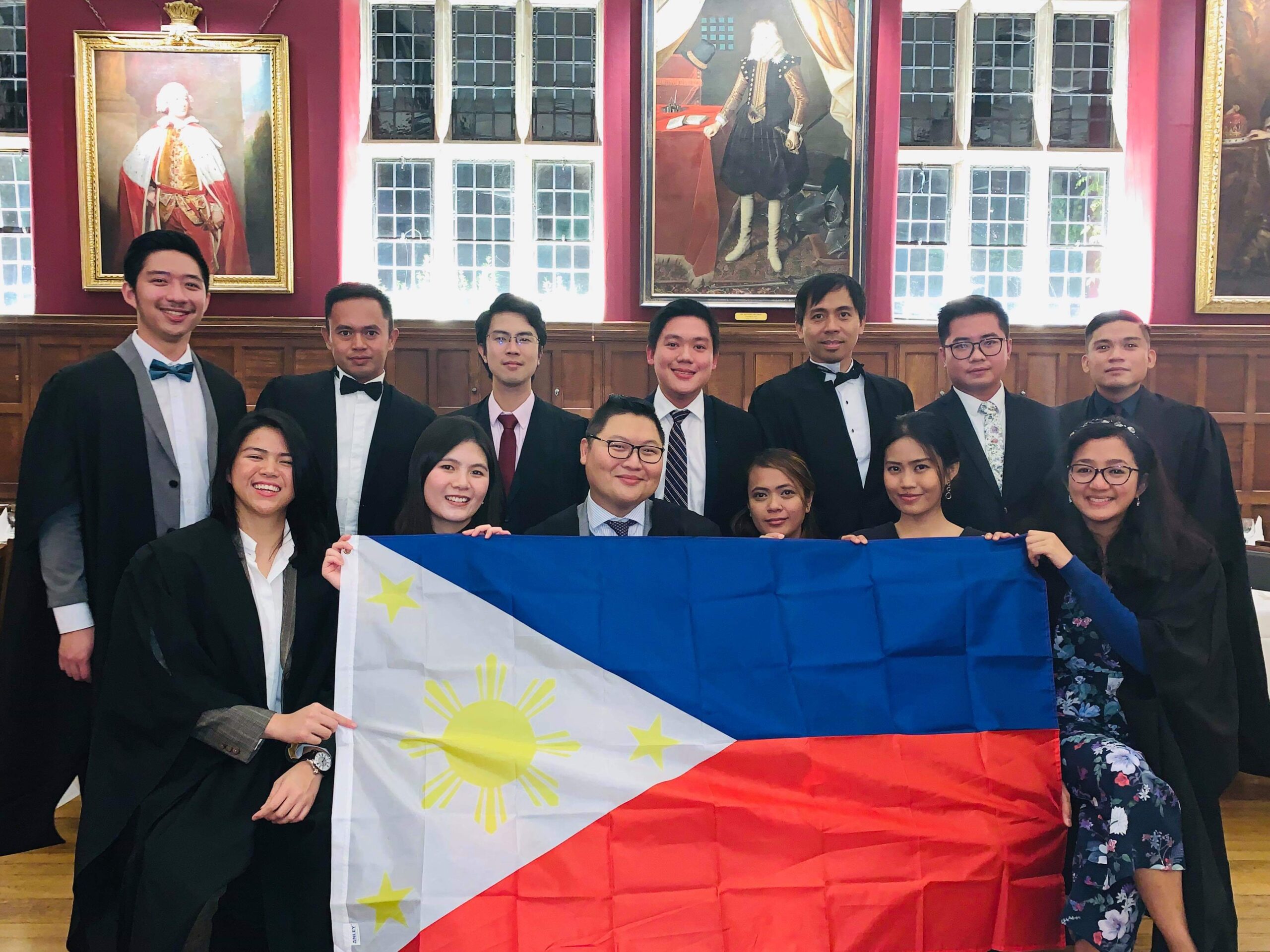In the university’s more than 800-year history, countless men and women—from Isaac Newton to Jane Goodall, Charles Darwin to Stephen Hawking—have entered and left its halls, and joined the wider world to find greater glory for themselves, for God and for their respective communities. These young Pinoys are raring to start changing the world.
By Kara Vibal Guioguio
Cambridge in England, one of the oldest universities in the world, closed its doors during the “Great Plague” in 1665. Caused by the bubonic bacteria and spread mainly through the bite of an infected rat flea, the plague killed an estimated 100,000 people in London alone in less than 18 months. Undaunted by the pandemic, one of its students, the young Isaac Newton, went back to his hometown to work and, soon enough, the world became all the better for it. The budding genius’ decision led him to develop early ideas on calculus, optics and physics, eventually earning for him the title “Father of Modern Science.”


History seems to have repeated itself. This year, the venerable university set in the English countryside once more closed its doors to the public because of the raging COVID-19 pandemic that has so far killed and sickened untold numbers of people the world over. Despite the disruption the pandemic has caused, this didn’t deter three Filipino students—Julia Cabanas, Marianne Vital and Jose Cua—from pursuing the path of academic excellence and graduating from Cambridge with honors in their respective Master in Philosophy (MPhil) programs.
Cabanas, who finished her MPhil in Architecture and Urban Design, will be graduating with a Distinction and the Morgan Sindall Prize for Construction. A daughter of Filipino migrants, she also took her undergraduate studies in Cambridge. Vital, for her part, secured a Distinction from her MPhil in Education, Globalisation and International Development, while Cua was awarded a Merit from his urban planning program called MPhil in Planning, Growth and Regeneration.
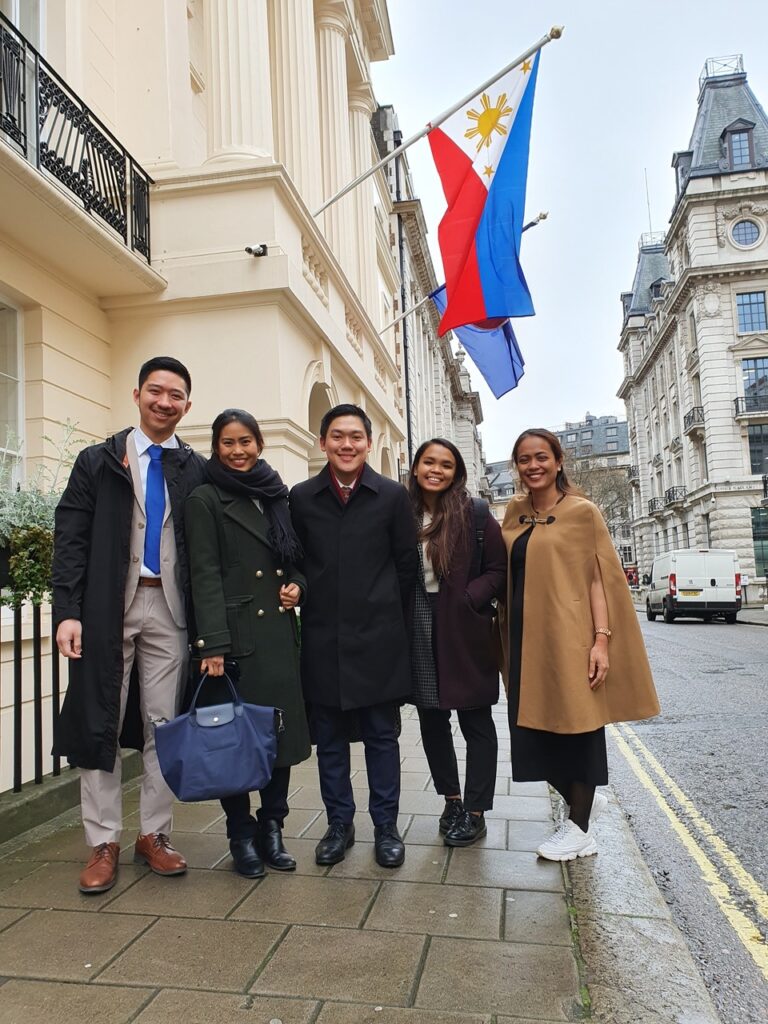
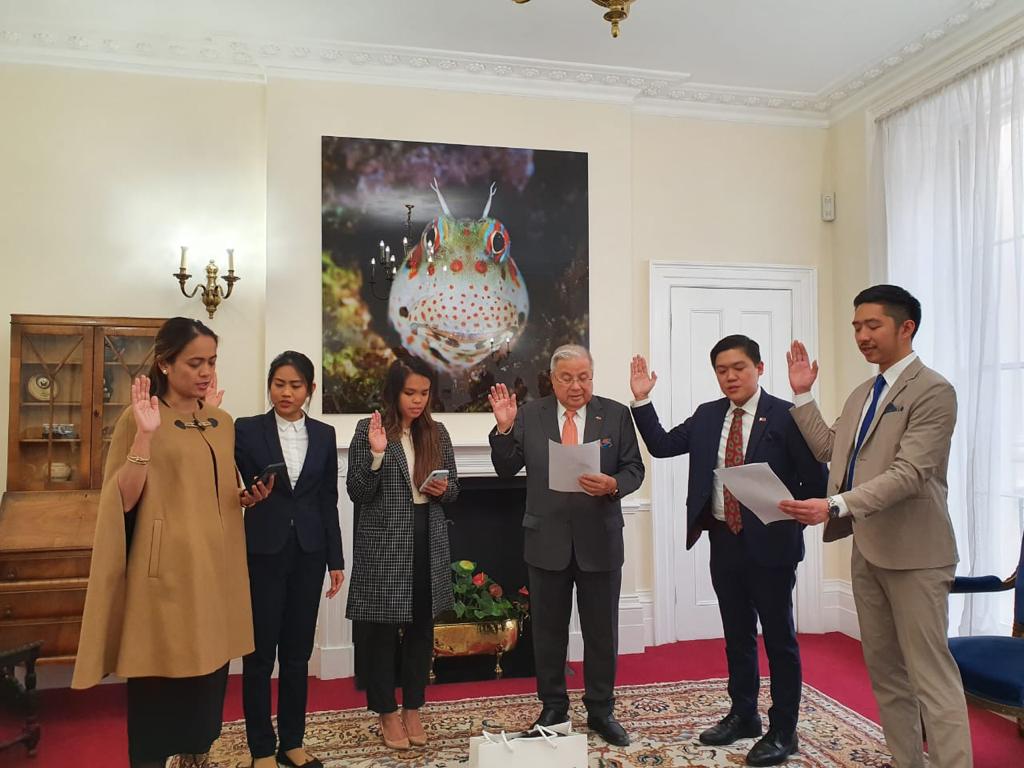
19th-century country estate
“When the city was emptying, I wasn’t allowed to go home because my mother who worked for the NHS contracted the virus and had to be isolated,” Cabanas shares. “I felt quite fortunate that my college allowed me to stay. It was as if I was the luckiest person in the world because I was quarantining in a 19th-century country estate. At that time there were only 70 students left, but we were able to create a new community. I made new friends during the lockdown, which is ironic because it was done while we were all socially distancing,” she recalls with a chuckle.
As the Beatles song puts it, Vital got by with a little help from her friends. She shares: “I think everyone’s experienced cabin fever. Even if the place is huge you still feel restless. You find all sorts of ways to cope with it, but a very significant part of my experience and what helped me cope better are the friends I made at the Cambridge University Filipino Society (CUFS).”
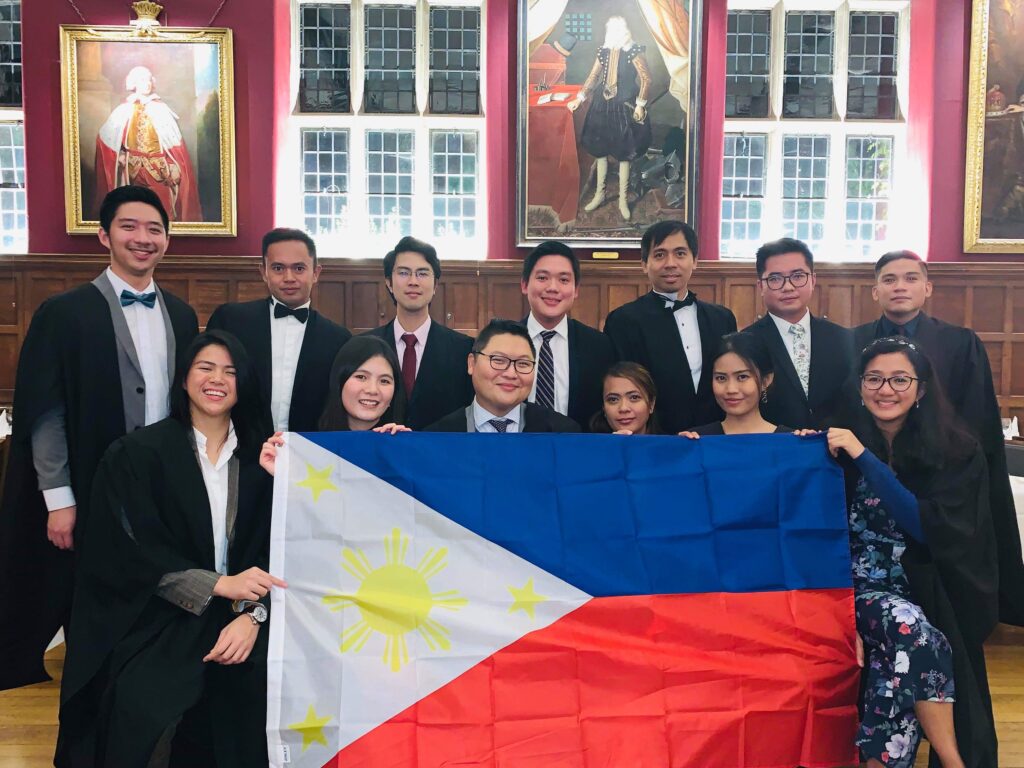
Karol Mark Yee, president of the CUFS and current PhD Education candidate, explains, “our main aim is to provide support to fellow Filipinos here and to foster an environment where we can freely exchange ideas and combine our talents to make something great together. We also aim to attract prospective scholars and convince them that the university is something they could consider applying to.”
Cambridge is distinctly unique, Cua, a budding urban and regional planner, enthuses. “It is, in different ways, otherworldly. It’s nestled in the middle of green, scenic landscapes. Stepping into the town is somehow akin to stepping back in time with all the heritage buildings,” he says.
“Coming to the city center, one will be greeted by beautiful and grand structures demanding admiration and respect for their history. After all, it is one of the oldest universities in the world, and through the halls of its colleges and the medieval streets walked some of the most well-known names in a plethora of fields,” Cua adds.
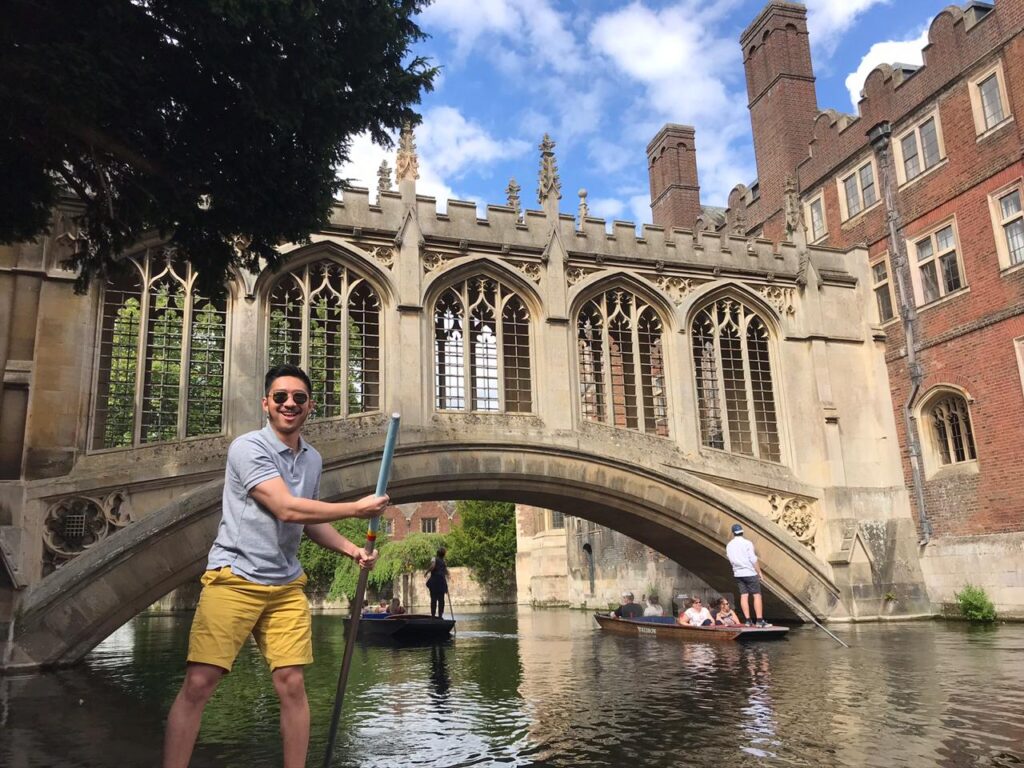
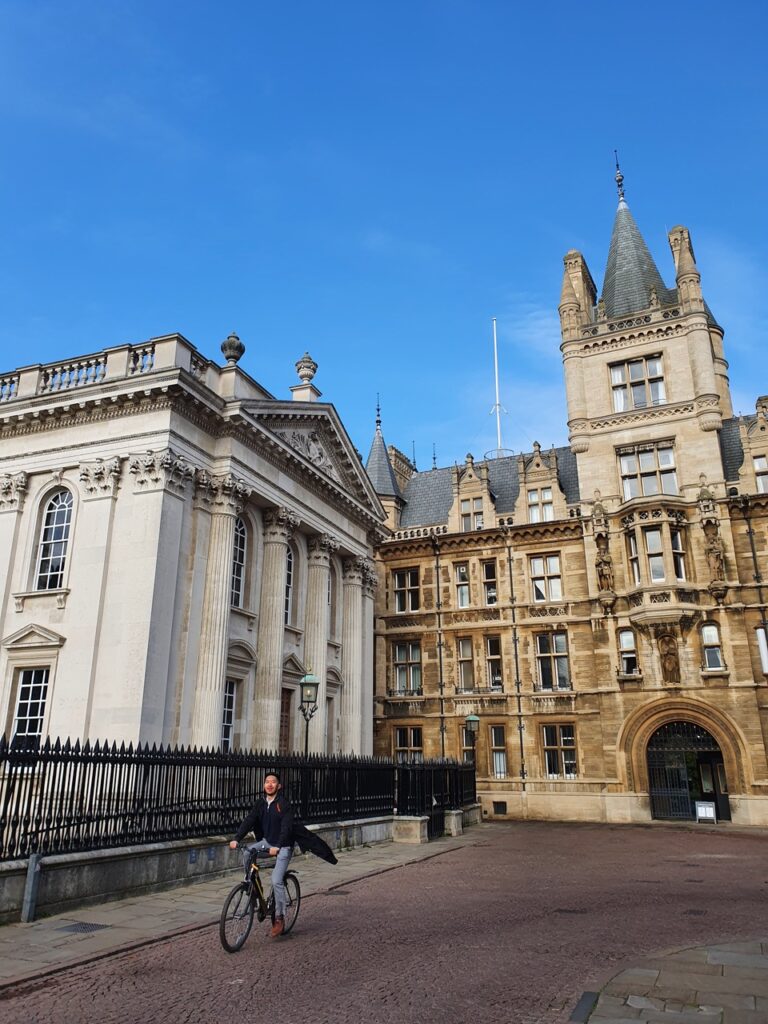
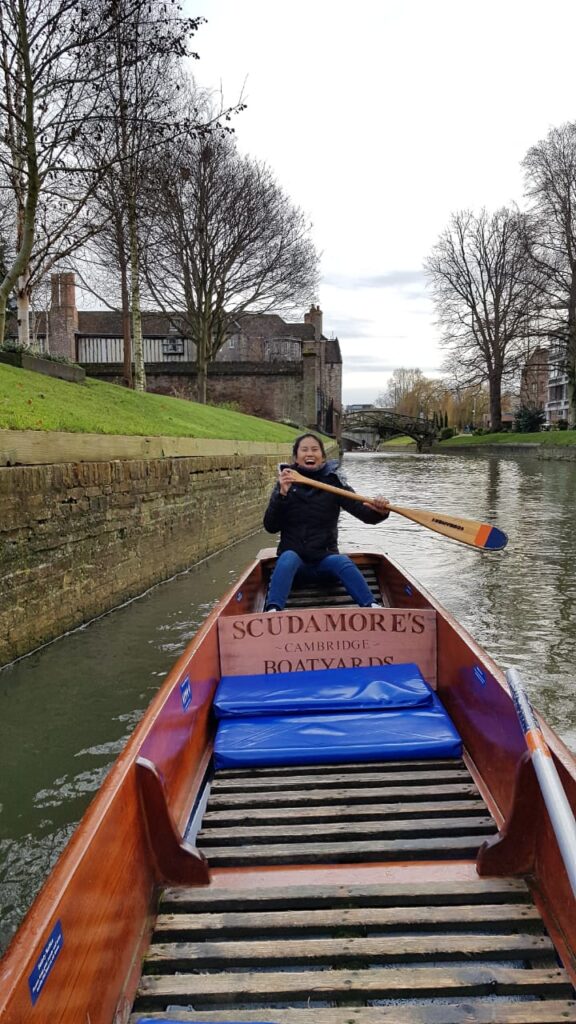
Top 10 in the world
Cambridge is the second oldest university in the English-speaking world and consistently in the Top 10 list across different university ranking systems. It also prides itself of an extensive list of illustrious alumni, many of them legends in their own fields, such as Charles Darwin, Alan Turing, Stephen Hawking, Jane Goodall, Amartya Sen and Tom Hiddleston. Its website declares that “affiliates of University of Cambridge have received more Nobel Prizes than those of any other institution.”
The campus itself bespeaks of legends. “Just outside Trinity College, there is an apple tree allegedly grafted from the very apple tree that inspired Newton’s idea of gravity,” Cua shares.
“In the city Centre, stands The Eagle, the very pub where Watson and Crick announced their discovery of the DNA structure, and you can even sit at the very spot where they announced it! Bits and pieces of history and ground-breaking discoveries are made accessible not just for the students, but also for visitors. As students in Cambridge, we were privileged to truly feel part of Cambridge’s history, to be a witness to its evolution, and to be in the midst of its intellectual greatness,” he continues.
Making the cut at Cambridge seems like a dream, but living abroad is not without its challenges, especially in the wake of the pandemic.
“In the early days of COVID19 there were some racial attacks against a few Chinese or Chinese-looking students,” says Cabanas. “I was quite active in getting the college master and the senior tutor to address this so we set up a reporting system and mounted workshops to address diversity and race. This year with the Black Lives Matter movement, it came to a pressure point and it’s something the world is beginning to talk about.”
“There are plenty of role models on campus. A Black woman, for instance, now heads a college, which was unheard of when I was in undergraduate. Like so many old institutions in the world, the university still has a long way, but these discussions are being had and the situation is improving,” she adds.
Personal and career growth
Vital will be moving to Washington DC to work at the World Bank. “I was scared of failing. There was apprehension in keeping up with everybody, especially classmates who belong to traditional upper-class families. But Cambridge provides a platform for personal and career growth and enables you to learn various things from different disciplines,” she shares. “I joined the rowing team, which meant I had to wake up at 6 a.m. when it was still dark and cold and foggy, but it was such a memorable experience! Living abroad really pushes you to try new things.”
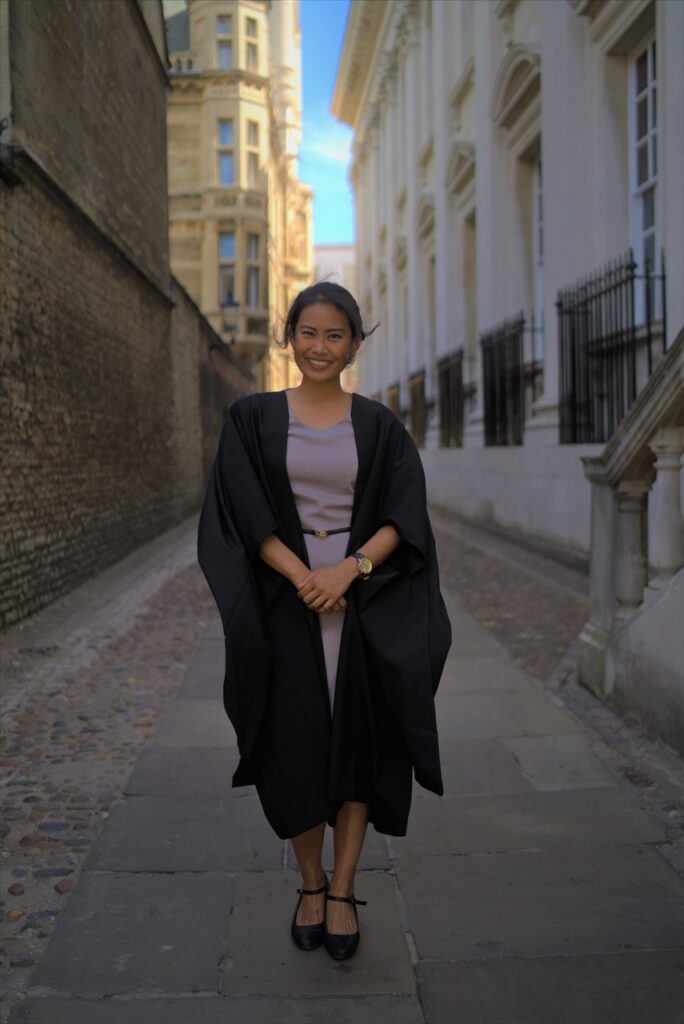


“In psychology,” Cua begins, “they say that friendships are forged deep when people go through hardships together. A good number of us in the Filipino Society were studying and living abroad for the first time. It’s never easy living alone, let alone abroad, where adjustments have to be made left and right. I think many of us had shared similar sentiments and experiences as we came to Cambridge, and that fostered our friendships amongst ourselves and those who have helped us in our journey.”
No matter how devastating an event has been for countless people, there’s always an upside to it. This current pandemic is no exception, as Cua credits the effects it has wrought for solidifying and renewing friendships. More so to students like him who chose to stay within the campus during lockdown.
“The role of the Society to serve as an exemplar. We keep sharing these stories of success to serve as an inspiration that Filipinos could thrive abroad,” he says.
“We want to show people that you don’t have to wait until you’re old to complete a master’s program and that they shouldn’t be limited by Philippine norms to understand that outside the country, practices could be different,” Yee concludes.
In the university’s more than 800-year history, countless men and women have entered and left its halls, and joined the wider world to find greater glory for themselves, for God and for their respective communities and countries.
Despite the economic or socio-political, psychological and even biological threats and limitations that their respective eras presented, these three privileged and deserving Filipinos have now earned a place among Cambridge’s distinguished graduates. Now, as they leave their beloved alma mater, the real work of changing the world begins.
For more information on studying opportunities in the UK, contact the Cambridge University Filipino Society through their social media platforms or website (Facebook: Cambridge University Filipino Society || Instagram: cambridge_filsoc || Website: https://cambridgefilsoc.wixsite.com/cufs)

